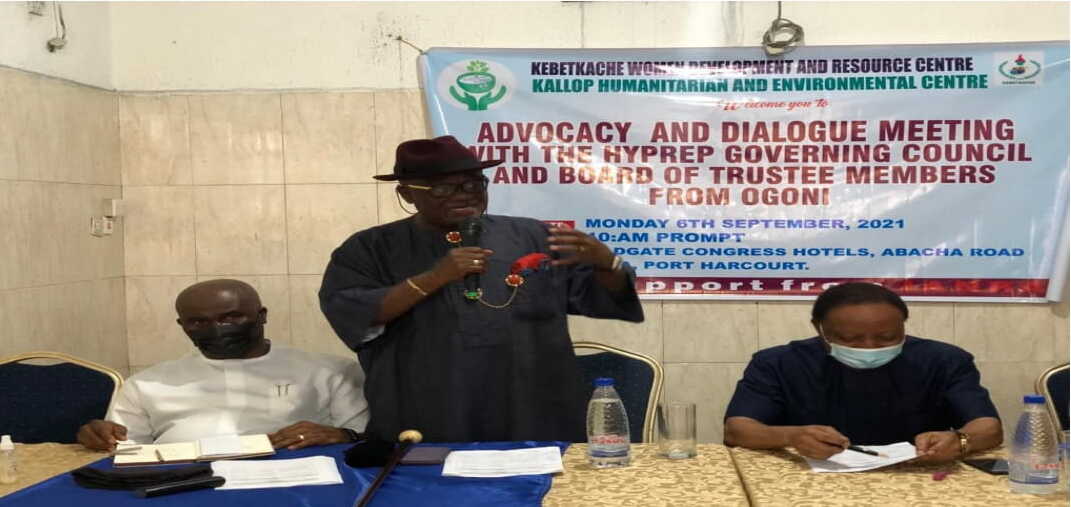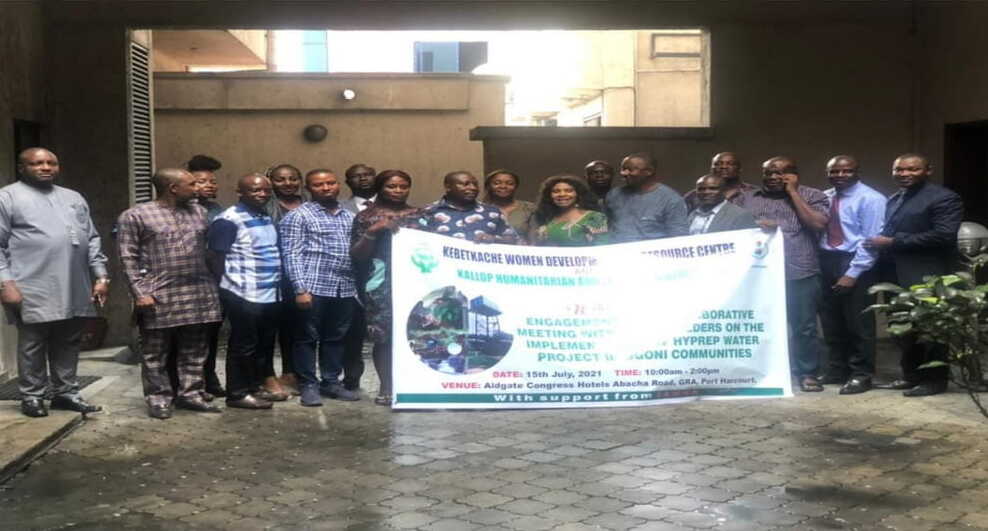The Otuabagi community in the Oloibiri Clan, Presently located in the
Ogbia local Government Area of Bayelsa state is an historic community as
regards oil and gas exploration and exploitation in the Niger Delta region of
Nigeria. The “Black Gold” (Crude oil) was first discovered in the community
in June 1956 in a 12,008 feet (3,639m) drilled well popularly none as
Oloibiri well 1 by the Shell D’Arcy. The community hosted about 17 oil well
among them is the famous Oloibiri Oil Well 1 and 2.
Otuabagi as a community were oil was first discovered in a commercial quantity has no significant development seen in the community. The community does not
have Hospital, Good School neither a potable water. Despite the fact that
oil was first discovered in our land, there is nothing to show for in terms of
development and benefit. All we have been suffering in this community is
periodic oil spills from abandoned Shell facilities.
The Shell D’Arcy later transmuted to Shell Petroleum Development
Company (SPDC) has been the operators of the Oil Mining Lease (OML
29) has divested their operation from land and shallow waters (onshore) to
deep sea (offshore), selling their asset to an Indigenous company named
Aiteo Eastern Exploration and Production Company, the people are only
hearing from grapevine that Shell have sold their asset to Aiteo, Shell has
not come to inform us neither Aiteo come to our community to talk with
them. This has attested to the fact that communities in the Niger Delta
region of Nigeria are not informed about the divestment plan by the
government and the multinationals. The communities has been sideline,
excluded and completely neglected despite the environmental degradation
caused by volumes of crude oil spilling and gas flare destroying their very
means of livelihood, leaving community dwellers in abject poverty.
There was high expectations by the indigenous oil bearing and host
communities in the Niger Delta that the black gold (crude oil) exploitation
will usher in a new wave of infrastructural development and apparently
economic prosperity. Unfortunately, the story is different for the oil bearing
and host community people who open-heartedly rejoiced in the initial stage.
The oil business has brought untold hardship that was never anticipated at
the onset of their crude business on our land. It has left us with
underdevelopment, economic strangulation, and environmental
degradation of the worst kind in the world, internecine wars and crimes
against humanity. Oil and gas exploitation started in1956 from the Oloibiri
oil well 1and 2 in the Otuabagi community. That opened a flood of
petrodollars for the country as other commercial discoveries followed in
quick succession across the Niger Delta region. Although, the 66 years of
oil extraction in the region, the oil boom actually pumping out billions upon
billions of dollars for the Nigerian ruling elites and their favoured cronies,
funding their growing culture of consumption over and above sustainable
development, investment and innovation.
The oil bearing communities that suffered the effect of the oil pollution has
nothing to gain neither do they have any control over the investment in their
land. Nigeria’s political and economic interplay in the petroleum sector and
its systems and the deliberate policies and laws of the Nigerian state has
subjugate the interest of the Niger Delta people by the dominant ethnic
groups, riding on a centralized ownership system they control.
There was high expectations by the indigenous oil bearing and host
communities in the Niger Delta that the black gold (crude oil) exploitation
will usher in a new wave of infrastructural development and apparently
economic prosperity. Unfortunately, the story is different for the oil bearing
and host community people who open-heartedly rejoiced in the initial stage.
The political economy and decision-making structure neglected the needs
and just expectations of the oil bearing indigenous communities, mostly
leaving them only with the environmental devastation that oil exploration
and production activities brought with them. Part of that toxic legacy is the
noxious air quality from continuous gas flaring and it’s associated
respiratory infections, acid rain, surface and underground water pollution as
a result of oil spills in the oil producing Niger Delta region of Nigeria, as
reported by the UNEP report in a section of the region.
The Niger Delta is a region rich in vegetation and water resources, primarily
depend on farming and fishing for their livelihood which has been grossly
impacted by oil exploitation. The effects of oil spillage are well-documented.
Oil spill destroys farmland, contaminates water resources and spreads
toxic waste. According to United Nations Development Programme
(UNDP): Niger Delta Human Development Report (2006), between 1976
and 2006, over 3 million barrels of oil is estimated to have been spilled into
the Niger Delta environment and the greater percentage of it left without
recovery. These environmental damages accompany the whole complex,
multi-faceted exploration process. Nigeria records one of the highest rates
of gas flaring in the world, and the Niger Delta bears the full harmful effects
of the attendant acid rain, air pollution, rising temperature which impacts
both human and wildlife. These harmful environmental trends continue to
escalate and destroyed the economic mean stay of the people so has been
the rising agitation of the Niger Delta for restorative measures.







